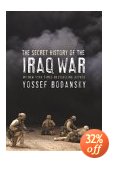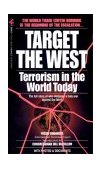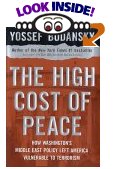|
| Home | About Kashmir Herald | |
Volume 4, No. 1 - July 2004 |
|
| Featured Article |
|
|
|
Mr PM, It's Our Paradise Lost Aditi In 1989, over 4,000 multi-storeyed houses stood tall on the banks of river Vitasta (Jhelum) in the heart of Srinagar. Bustling with life, all these belonged to Kashmiri Pandits. Today, all that remains of them is burnt shells and rubble with overgrown vegetation, while some have been occupied by Muslims. More than 2,000 Kashmiri Pandits were killed between September 1989 and February 1990 and hundreds are missing. Meanwhile, 15,000 met unnatural deaths. Out of the 16,000 State employees forced out of the Valley, over 9,500 have retired and 6,000 continue on posts they held 12 years ago and get a consolidated salary with no benefits. No fresh recruitment has been taken up for filling the retired posts in the Valley. The 4,000 retirement cases cannot be settled as the State Government denies having their service book. The 95 per cent literacy level of the community has fallen sharply to 60 per cent due to unwarranted dislocation. From the comforts of a home in the serene Valley to a pigeon-holed existence. That's the story of half a million Kashmiri Pandits. Terrorised and killed. Their houses burnt and properties looted. Uprooted from their homeland, they are forced and live a life of refugees in their own country. Chaman Lal once lived in a joint family in a huge house in Srinagar; today he has a one-room set in Jammu. For four years, he has been making rounds of the secretariat to settle his pension. He draws only 80% pension and does not get GP fund and other retirement benefits. Seventy-year-old Gauri Kaul lived in a sprawling house in a Pandit-dominated area of the Valley. Today, she suffers from cirrhosis, exacerbated by the shock of leaving home and hearth. In the past 15 years, she has had to shift as many times, as landlords demanded lease and an increase in the rent. R L Saraf was the sole distributor of a pharmaceutical giant, a big house and a flourishing business. Today, he lives hand to mouth. Fourteen-year-old Rohini's eye is permanently damaged as the terrorists hurled a bomb on their house in Anantnag. She stays in the corner of a camp partitioned by bedsheets. Her eye is yet to be treated. "There has been an ethnic genocide in Kashmir. Thousands have been killed barbarically, raped, plundered and forced to live in hell. We continue to suffer as all have turned a Nelson's eye towards us," says Nancy Kaul, of the Daughters of Vitasta, a Kashmiri women's organisation. She asserts that the community's death rate has risen sharply, while the birth rate has crashed. Even as Musharraf demands a meeting with the Hurriyat Conference, the separatist conglomeration, these half-a-million people continue to be ignored. Is it because they are nationalistic and stood by India? "Newspapers and TV channels are full of reports about President Musharraf and his peace overtures. It is ironical that the issue of Kashmiri Pandits, who lost everything due to Islamic terrorism in the Valley, finds no mention anywhere. If terrorism, which Pakistan is supporting, is not on agenda and neither are we, then what good are the talks?" asks Sanjla Kaul. Sanjla was 18 when her father Lassa Kaul, Doordarshan Director in Srinagar was killed in cold blood outside his house in February 1990. She accuses the Indian Government of being soft on the perpetrators of terrorism. "How can you talk on everything else minus the problem. Hundreds of us have been killed by the very same who call themselves oppressed. It is well known who all conspired to kill my father, but 15 years have passed and the inquiry is still pending. What about are our human rights? Where is justice?" asks Sanjla. For 70-year-old D N Bhat and his wife Sonabatni, it has been years since they have slept peacefully in there unplastered one-room house in an unauthorised colony in New Delhi. Bhat's 29-year-old son Virji, an engineer in the State Irrigation Department, was killed when he came to visit his parents for a day in Nagam village in the Valley. "He went out to a nearby shop to get thread to repair some clothes. In the meantime, we heard gunshots and ran out. A Gypsy came and the men inside showered him with bullets. No one came forward to take him to hospital," recalls Bhat. "Blood was gushing out and it took two hours for the PCR to come. My son kept saying, 'they called me an Indian agent, please take me to the military hospital, otherwise I will die'." Mr Bhat wasn't allowed to accompany Virji in the police vehicle, though his wife went. Doctors at the general hospital said he would survive, but he died within hours. Sonabatni speaks only through tears as she gently looks at a tattered photograph of her son and laments, "They killed him. He said I am an Indian. They killed him..." Mr Bhat terms the summit futile and the track two diplomacy a joke on the plight of Kashmiri Hindus. "Pakistan can never be trusted. These people talk about Hurriyat and the plight faced by the Kashmiri Muslims. Look, what they have done to us. Islamic terrorists are responsible for our condition. Instead of talking about the victims, you are talking of them. If India thinks opening the borders or the highway linking the Pakistan Occupied Kashmir with Srinagar will bring peace, it will not. Instead, India will repent." Mr H K Kaul, president of the Kashmiri Displaced Employees Forum, alleges discrimination at all levels and is fighting a case in the National Human Rights Commission since 1993. "The State employees are a tortured lot. They get just a fixed sum of money. Although it is not so with those in the Valley. We get no promotions, no allowances as stated in the rules, no rent, no loans and there's hardly any recruitment from the community. We are dropped from seniority lists and the case in the NHRC has been lingering since seven years. God knows when justice will come my community's way." In a corner of one of camps, separated by sheets, lives Sunil, a 32-year-old post-graduate working in a private firm. His maternal and paternal uncles were barbarically murdered. His father C L Bhan recounts: "My brother Makhan Lal Bhan, a block Development official, was abducted near Qazigund while on duty, way back in 1965. Even though the engineer with him, Gulam Hassan, was let off, he remains missing till date. In 1990, another brother along with my wife's brother were killed. This has no meaning. We are not a vote bank, no one wants to hear us." The Indo-Pak summit to them means a weak India. "Which country will allow this. Musharraf says terrorism will continue and we do not sternly tell him to stop," adds Mr Bhan. Even as some of the Kashmiri Pandit organisations are planning to protest in the coming days, Ms Nancy Kaul says, "I want the Indian Prime Minister and the Government to answer why a pseudo-secularist policy is being practiced. We have equal stakes in Kashmir. We were called Indian dogs and have died for the country. If Musharraf has clearly said he will further terrorism in J&K, why are we talking meekly of trade. Mr Prime Minister, Kashmir is ours." Courtesy: This article was first published in www.dailypioneer.com. |
 |
 |
 |
|
|
Archives
| Privacy Policy |
Copyrights
|
Contact
Us | |
||